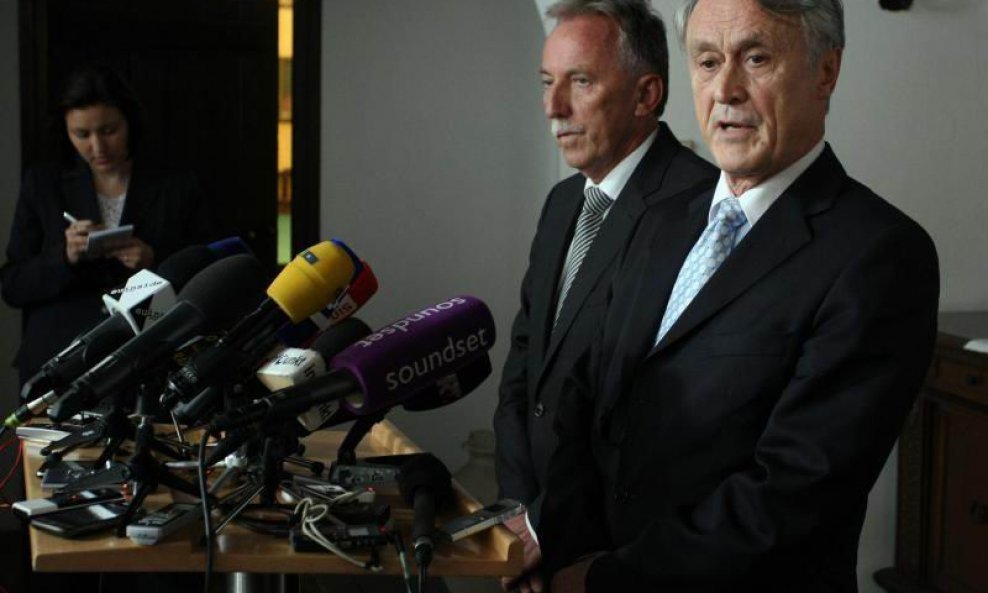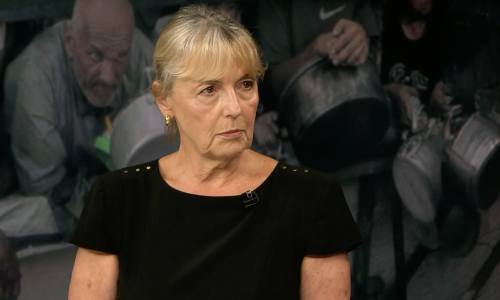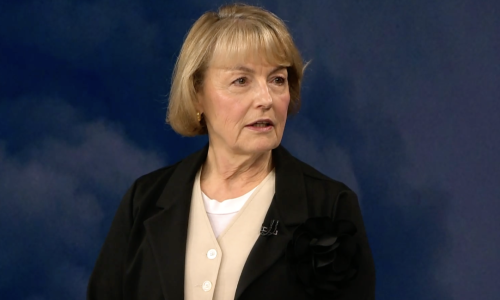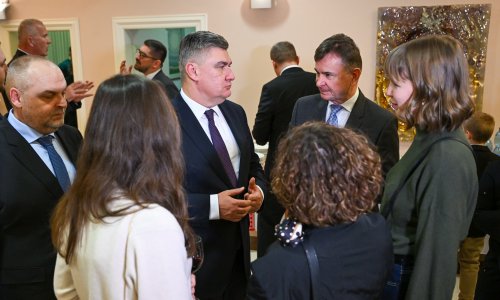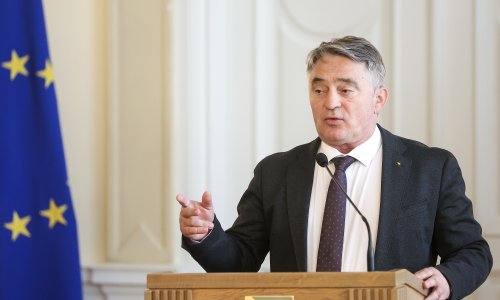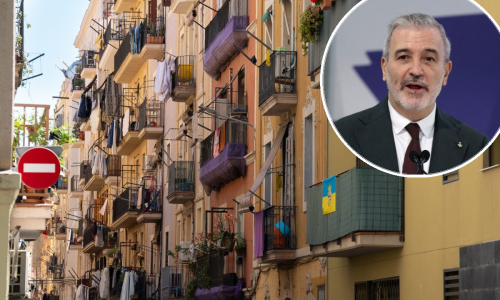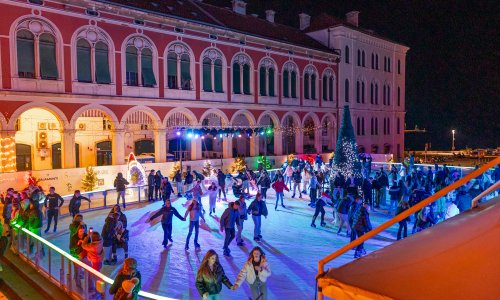Apart from Croatian and Slovenian Foreign Ministers Vesna Pusic and Karl Erjavec, who are due to meet in Otocec ob Krki on Wednesday in an attempt to resolve the dispute over Ljubljanska Banka (LB), the two experts appointed by the Croatian and Slovenian government to address this issue - Zdravko Rogic and France Arhar - are also expected to participate in that meeting in the southeastern Slovenian town.
This will be the fifth meeting of the two experts after at their four previous meetings they made an inventory about the dispute over the now defunct bank and its debt to Croatian clients regarding the savings they transferred from LB subsidiaries in Croatia to Croatian banks in the early 1990s and who were later compensated by the Croatian state.
According to statistics of the Croatian National Bank (HNB), the so-called transferred savings totalled some 545 million German marks, and the Croatian government provided Zagrebacka Banka and Privredna Banka Zagreb with power of attorney for lawsuits against the LB for the coverage of that sum.
Non-transferred savings totalled approximately 312 million German marks, and in this case Croatian citizens are conducting legal actions on their own. Rogic and Arhar said that they would not tackle this matter which they have branded as private lawsuits.
As for the case of non-transferred savings, on 6 November 2012, the European Court of Human Rights (ECHR) ruled that the Republic of Slovenia was liable for the payback of "old" foreign-currency savings to clients of Ljubljanska Banka outside Slovenia. That judgment is not final as the parties have three months to file an appeal with the ECHR Grand Chamber.
Rogic and Arhar held their first meeting also in Otocec ob Krki on 28 August 2012, and in the meantime they have proposed to the two countries' foreign ministries to try reactivate their negotiations on the LB dispute before the Basel-based Bank for International Settlements. In addition, the two experts have also agreed on "a concept of the resolution including both multilateral and bilateral components". After their last meeting in Zagreb on 4 December, Rogic and Arhar said they still advocated the position on reactivating negotiations within the Bank for International Settlements and that they would inform their respective governments that the concept of the resolution with multilateral and bilateral components, drafted at their previous meeting, was a good way to approach this issue. Rogic told the press then they had analysed the problem in detail and decided that the concept they agreed on at their meeting in Bled, Slovenia, on 4 October, was a good way to go ahead. Arhar said the two parties would continue to search for a solution with which both countries would be satisfied.
After that the Croatian Jutarnji List reported that the two experts had proposed a model under which Slovenia would pay back a debt totalling EUR 278.7 million euros to Croatia over a 30-year period, and Croatia would write off the default interest rates. The Slovenian embassy in Zagreb, however, immediately denied such media reports.
On Monday, Minister Pusic said there were three or four possible ways for resolving the LB issue and that she, Erjavec and the financial experts would discuss them on Wednesday. Pusic also commented on recent claims by Slovenia's Ambassador to Croatia Vojko Volk in an interview with the Slovenian Delo daily, that the Ljubljana Banka's receivables from Croatian companies are four times higher than transferred Croatian savings were.
Our financial expert has data issued by the Slovenian government which indicates that this ratio is in fact the opposite. It is not up to foreign ministers to rely on guess work, it is up to the financial experts to determine relations based on relevant documentation, she said. Pusic said that offsetting debts was only one of the possibilities and that there were at least three more.
Speaking to Delo, Ambassador Volk said "the solution can be simple only if we get rid of prejudges and delusions from the last 20 years." Volk said Slovenia had so far made a mistake for being inactive in removing such delusions.
According to the Slovenian media, the claims of the now-defunct Slovenian bank from Croatian companies totalled 1.18 billion euros at the end of 2012, and this sum was the principal sum plus overdue arrears on loans which Croatian companies failed to pay back to the bank. According to the media, the amount of the interest for default was calculated in line with "Croatian regulations".
The LB dispute holds back the ratification of Croatia's Treaty of Accession with the European Union in the Slovenian parliament.
After their meeting in Brussels on 31 January, Erjavec told the press that given the current political situation in Slovenia, he could not guarantee that the parliament would ratify Croatia's EU accession treaty on time if the solution to the Ljubljanska Banka issue was not found in February. Pusic said later that "both sides have good will to resolve this."



